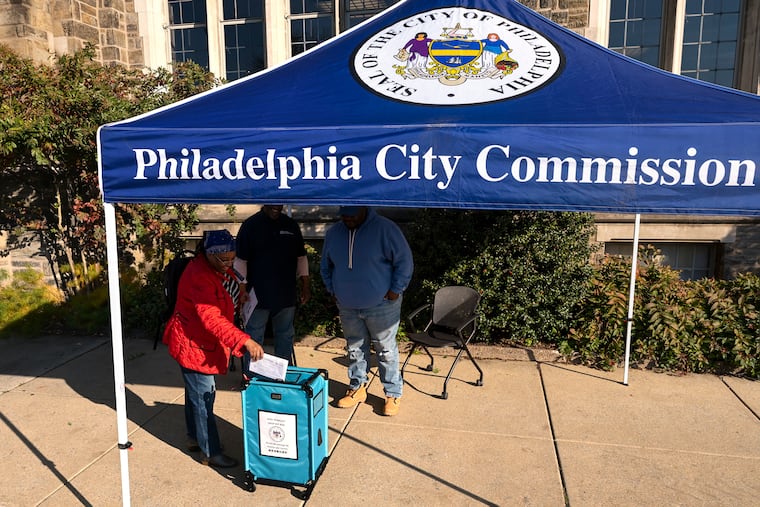Some Philadelphia mail ballots arrived with return envelopes already sealed. Here’s what voters should do.
Some Philadelphia mail ballots arrived with return envelopes already sealed. This is what voters should do.

Mail ballots began going out to Philadelphia voters last week. But in some cases, the return envelopes and secrecy envelopes provided to voters were already sealed when ballots made their way to voters’ homes, according to multiple voters who flagged the issue to The Inquirer.
The issue is causing frustration for Philadelphia voters, who are poised to play a key role determining who wins the White House in November.
But those voters can still cast their ballot by mail either by requesting a new envelope or by cutting the sealed envelopes open and taping them shut before returning them, said City Commissioner Seth Bluestein, a Republican on the three-member panel that oversees the city’s elections.
In a post on X, the Pennsylvania Department of State said humidity across the state had led to the prematurely sealed envelopes and urged voters to contact their local election offices if they encountered issues.
It’s unclear how many envelopes were sealed, but roughly 10,000 mail ballots have already been returned, indicating it was not a universal problem for Philadelphia voters, Bluestein said.
“There’s absolutely no reason to believe that any of the envelopes were tampered with,” Bluestein said, noting that Philadelphia’s mail voting system is safe and secure. The city encountered a similar issue during April’s primary, he said, but it affected fewer voters as it was a low-turnout election.
For the general election, Philadelphia has sent or is in the process of sending more than 150,000 mail ballots, Bluestein said. The first set of those ballots was sent on Sept. 24 and 25.
“We have a lot of time between now and Election Day for any concerns like this to be corrected and for voters to have the opportunity to make sure they get a ballot turned in before Election Day,” Bluestein said.
The state deadline to request a mail ballot is 5 p.m. Oct. 29. Ballots must be returned to county election offices by 8 p.m. on Nov. 5 to be counted.
What should I do if my envelope is sealed?
When voters request a mail ballot, they receive an envelope containing their ballot, a return envelope, and a secrecy envelope. Those envelopes are supposed to arrive unsealed so that voters can place their ballot inside them before mailing it back. According to state law, voters must place their ballot in the secrecy envelope in order for it to be counted.
If one or both envelopes arrive sealed, a voter has two options: request a new envelope or cut the envelope open and tape it closed before returning the ballot, Bluestein said. If voters choose to tape their envelopes, their votes will still be counted, he said.
The city commissioners provided directions on how to request a new ballot in a post on X. Voters can request replacement materials by calling the Philadelphia Office of the City Commissioners at 215-686-8683, requesting a new ballot online, or visiting one of the city’s seven opened satellite election offices; the locations are listed at https://vote.phila.gov/about-us/satellite-election-offices/.
City Commissioner Omar Sabir, the Democrat who chairs the panel, said the situation highlighted the importance of the satellite offices. The city plans to have 10 opened before the election. Voters can request mail ballots, receive them, and cast their ballot in a single visit to the satellite offices.
“These satellite offices are definitely the game changer, and it just makes it so easy,” Sabir said.